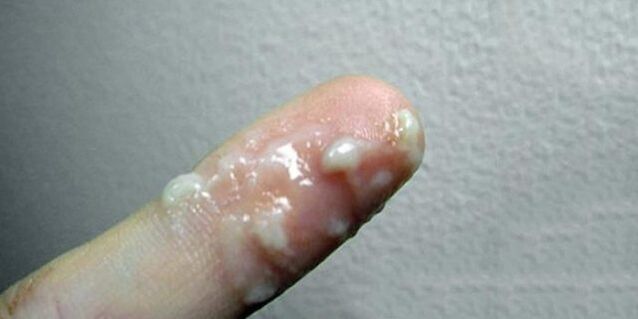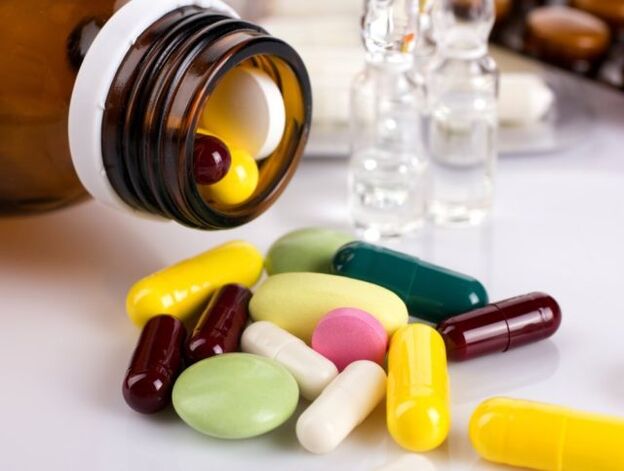As long as the human body, and especially the male, does not fail and does not signal bad health with pain in any part of it, it seems that this representative of the stronger sex will always be young and healthy, and the pain small and painful. the symptoms will go away on their own. But, according to statistics, the first signs of prostatitis in men appear insignificant and, therefore, are ignored by the men themselves, which ultimately requires relatively serious consequences. What to do at the first manifestations and signals of the development of prostatitis, how to prevent worsening of the nature of the disease and prevent undesirable consequences - we will consider later in this article.
General information
According to statistics, prostatitis is the most common male urological disease, which is an inflammation of components of the reproductive system such as the prostate gland, which is located below the bladder. In short, the prostate is located near the urinary tube, covering it. Inflammation of the prostate causes its enlargement, as a result of which it presses on the urinary tract, reducing the lumen in it, which does not empty the bladder completely when urinating.
A few decades ago, prostatitis was considered a disease of mature age, as the disease was observed in the stronger sex after 45 years, whereas today signs of prostate inflammation can appear even in young men (under 30).
The prostate gland in the male body performs the following functions:
- produces secretions that make sperm more liquid, and helps increase the duration of sperm activity;
- produce prostaglandins and other active substances and hormones;
- provide an adequate rate of sperm release;
- protects sperm from getting urine into it.
The main problem that arises as a result of the development of prostatitis is that with an increase in the number of the gland itself, an increase in the amount of urine remains after urination in the bladder and poisoning the body of the man. Therefore, even minor symptoms of inflammation should not be ignored, so as not to trigger the disease to more serious consequences.
cause
The results of long -term clinical studies have made it possible to identify the main causes of the disease and the groups of people who most often suffer from prostatitis.
So, risk groups include men:
- working sitting for long periods of time, as well as living an inactive lifestyle;
- be overweight;
- having free sex, the consequences of which may be damage by sexually transmitted infections;
- suffer from frequent constipation, which triggers the spread of microorganisms and bacterial inflammation of the prostate;
- experiencing excessive stress on the groin muscles as a result of an injury or occupational reason, such as a driver;
- prone to frequent hypothermia, hormonal disorders, as well as those whose sex life is irregular.
Signs of prostatitis in men
Any serious disease warns of the early stages of its development with certain signals. If you don’t take them into account and don’t seek expert advice in a timely manner, you can lose valuable time that could be used to treat the disease in the first place.
Often, the disease persists without definite symptoms, passing without due attention to a chronic form that is difficult to treat.
With certain signals, it warns of the early stages of development of any serious disease
But if a person pays attention to the changes that occur to him, he will certainly notice the early symptoms of inflammation in the following manifestations of prostatitis in men:
- Often want to urinate at night.
- The process of emptying the bladder itself is difficult, characterized by weak pressure, intermittent or split flow, painful and longer than normal travel.
- A man feels a burning sensation when urinating, after which the feeling of a full bladder remains.
- Painful sensation during defecation.
- Decreased erectile quality, fatigue, involuntary erections at night.
- Chills due to increased body temperature.
- Highlights certain colors.
Symptoms of prostatitis
Prostatitis caused by microorganisms (bacteria) can usually occur in acute and chronic forms, each of which is distinguished by the presence of special symptoms:
- if prostatitis is observed in the acute form, then a significant increase in body temperature is a frequent phenomenon, the pain not only extends to the prostate area, but also radiates to the groin and also to the lumbar region, men note the presence of difficult and frequent urination, decreased libido;
- chronic course of prostatitis is characterized by characteristic pain in the pelvic and perineum areas, the presence of blood clots in semen and painful ejaculation, frequent nocturnal desire to urinate, accompanied by burning and pain.
What are the features of acute and chronic inflammation?
Acute prostatitis is less common than chronic prostatitis. A characteristic manifestation of the acute form of the disease is characteristic of severe pain that dislocates the perineum and increases during urination and defecation. In addition, there may be prolonged discharge from the urinary tract and decreased erections. Temperatures can rise up to 38-39 degrees. In severe cases, with acute urinary retention, serious body intoxication is possible.
Chronic prostatitis has symptoms similar to other urological diseases, and sometimes asymptomatic. But it can be recognized by mild and rapid pain in the perineum, as well as in the groin and genital area. The duration and quality of intercourse change significantly, and during morning urination, sediment in the form of white flakes may be present in the urine. There may be a characteristic discharge after emptying the bladder.
As a result
If you do not identify diseases such as prostatitis, and do not start treatment in a timely manner, the consequences can be very sad - from violations of the patient's normal lifestyle, provoked by dependence on the toilet, constant unpleasant and painful sensations, intoxication due to poisoning withthe product of vital activity of the body itself contained in stagnant urine, leading to significant disturbances in the genital area, leading to impotence and infertility.

In addition, prostatitis in a man reduces sperm quality and, consequently, the likelihood of fertilization. Pathological processes occurring in the prostate gland can cause abscesses, renal failure and inflammation of other organs of the genitourinary system.
Pain syndrome
In any form of prostatitis that occurs, this process is necessarily accompanied by pain syndrome, and the pain often radiates to the scrotum, sacrum, abdomen, back and pelvic area. The prostate itself cannot give severe pain, but the nerve endings of other pelvic organs respond abruptly to the inflammatory process localized within it.
Special release
Discharge from the urinary tract with prostatitis can be of the following types:
- Colored like milk, the release of a thick consistency - indicates the development of inflammatory processes in the prostate gland.
- Uncontrolled release of sperm from the urethra - indicates the transition of prostatitis to a chronic form or the development of other diseases of the genitourinary system.
- Purulent discharge appears with moist prostatitis, but in combination with high temperature is a symptom of the transition of the disease into an acute form.
- Purulent discharge with a mixture of mucus is observed in the presence of bacterial prostatitis caused by microorganisms, an infection that occurs mainly through sexual intercourse.

Treatment of prostatitis
Complete cure of prostatitis is a relatively lengthy process that requires an integrated approach. First, with the help of laboratory tests, diagnostics are carried out to determine the nature of the disease, ultrasound examination, MRI and tomography are prescribed, with their help they clearly determine the presence of this particular disease, and not others with similar symptoms.
Once the diagnosis of prostatitis is confirmed, the urologist prescribes the necessary therapy, which includes:
- Drugs that increase blood circulation.
- Painkillers.
- Anti-inflammatory drugs.
- If there are signs of intoxication, a detoxification solution and electrolytes are prescribed.
- Additional activities may include diet food, exercise therapy and sedatives.
Surgical treatment is indicated only for prostate abscess or complete blockage of the outflow from the bladder.

How to treat prostatitis at home
Traditional methods of treating prostatitis include the use of natural remedies such as:
- Pumpkin seeds.
- Soup and enema with it from the skin of chestnuts.
- Colored ripe chestnuts.
- Freshly squeezed juice from carrots, beets, cucumbers, asparagus.
- Elderberry juice (black).
- Prostate sequence.
But nevertheless, it should be borne in mind that such funds are additional, the treatment process will be quite lengthy and must be supervised by a qualified urologist.
Prevention of prostatitis
Any man can carry out preventive measures independently:
- pay attention to physical activity, rational spare work, rest and physical activity;
- walk, and the more the better;
- adhere to the rules of a healthy diet and lifestyle;
- visit a doctor if minor symptoms of the development of the disease appear;
- use contraceptives;
- men are at risk for not carrying weight, as well as avoiding excessive physical exertion;
- adhere to an orderly sex life.
Reviews
A forum devoted to various methods of treating prostate disease is full of messages, the same motive:
- the disease affects about 60 percent of men in adulthood (over 40);
- many of them constantly postpone visits to specialists, triggering the disease, as a result of which prostatitis becomes a chronic disease;
- emerging pain signals and the presence of characteristic discharge are often considered a manifestation of venereal disease and independently, and sometimes on the advice of friends, take medications, although they know for sure that it is better to consult a specialist;
- almost all experience erectile dysfunction, decreased sexual drive and sexual dysfunction.



















